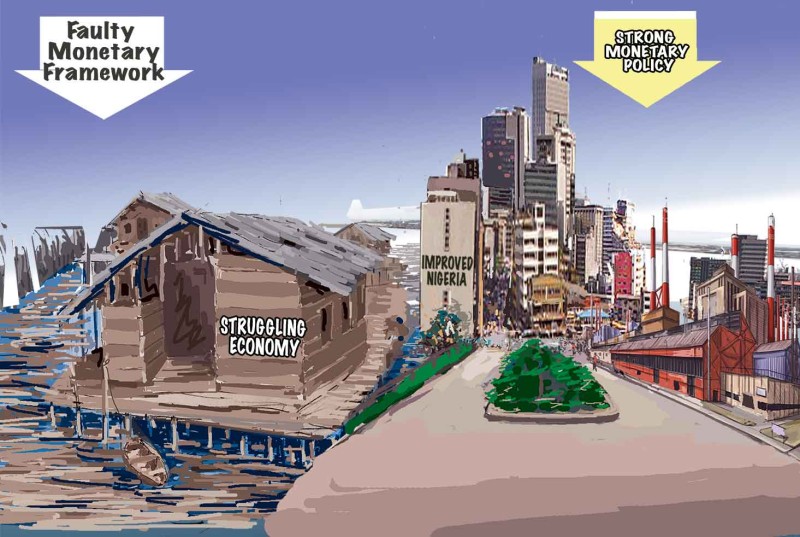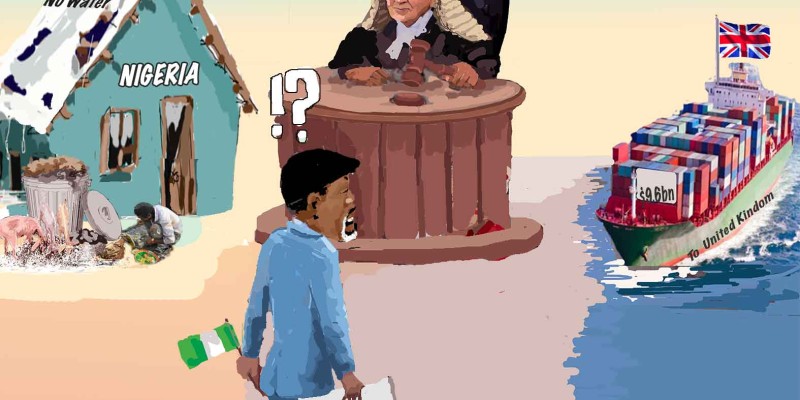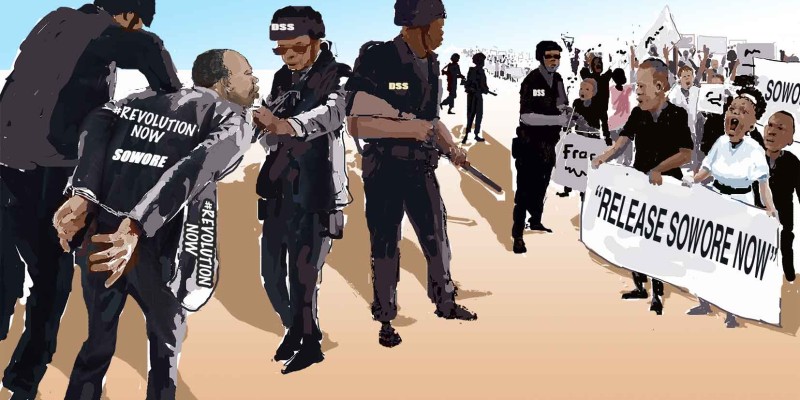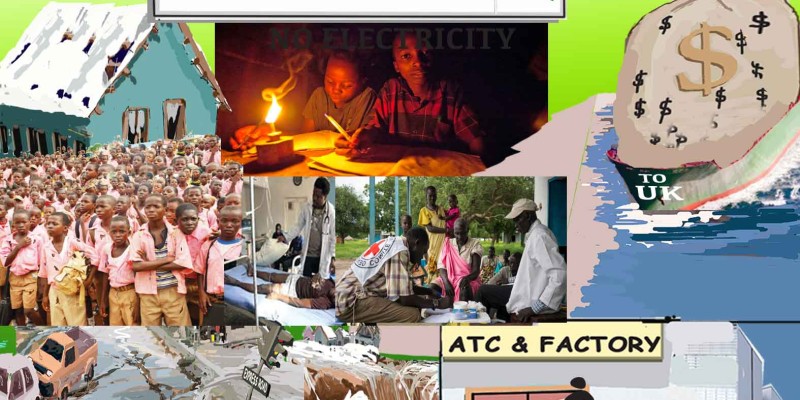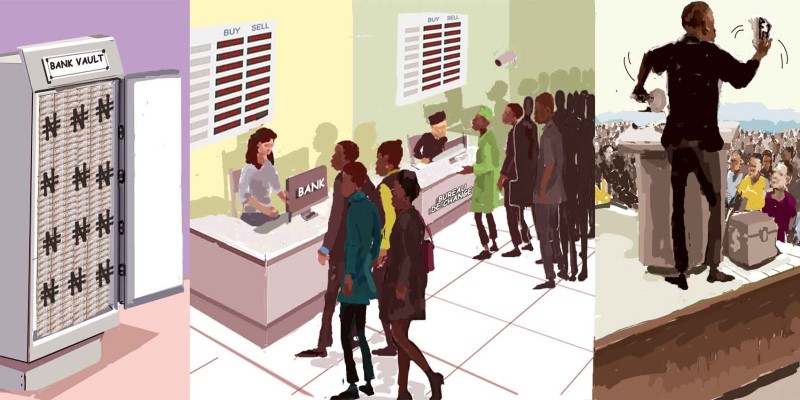LATENT WEALTH WITH DEBT SEEKING MINDSET
By: Sir Henry Olujimi Boyo (Les Leba) first published in February 2016
INTRO:
Last week, this column republished ‘The Sensible Path to a Stronger Naira and Economic Prosperity’. The article explains why an increase in income does not always mean an increase in prosperity, it clearly portrays Nigeria’s situation.
(See www.betternaijanow.com for this series and more articles by the Late Sir Henry Boyo)
This week’s republication discusses poor allocation of government spending driven by self-interest, and Nigeria’s increasing debt burden considering the need to develop systems and infrastructure that would improve the standard and quality of living of Nigerians.
As you read through the below article taking note of previous events and rates, keep in mind its initial publication (2016), a clear indication that Nigeria’s economic situation is yet to improve.
The 2016 Appropriation Bill, has probably generated wider public interest and debate than any other annual budget in recent memory. The projected spending of over N6Tn is by far the highest ever, but will also require an exceptionally heavy loan of almost N2Tn to fund this budget, in which capital expenditure is allocated an unusually high, though still modest provision, of 30% of government's total spending this year.
It is clearly a mark of tardiness that we have continued to struggle with the discipline required to effectively commence budget implementation as from the first day of every accounting year; furthermore, the recent mind-boggling revelations of levity and embedded self interest in the present budgeting process is even more disturbing.
In this event, it is no wonder, therefore that our social infrastructure and welfare continue to be degraded, despite decades of steady increases in government spending. The 2016 Appropriation Bill is clearly in tatters and it would certainly take much longer to enact, if issues relating to budget padding and the present controversial N2Trillion projected borrowing plans are to be responsibly addressed; invariably, any attempt to hurry through budget enactment may only lead to a self-serving anti-people compromise between the Executive and the legislature.
In these circumstances, particularly after the multitude of inconsistencies observed in the preliminary screening sessions, the Appropriation Bill may just be ready for passage between March/April, especially since the respective Legislative committees have directed most of the MDAs to come back with realistic budgets which are more appropriate and defensible, after fully considering the trend in the various line items of expenditure and revenue, for the preceding three years budgets.
Consequently, the implementation of this year's Capital budget may at best only span about nine months, and this reality should therefore recommend a minimum 25% reduction in the projected celebrated capital budget of N1.8Tn in 2016; in this event, the bloated projected loan of N2Tn will invariably also shrink by over N400bn to restrain our already oppressive debt burden and related service charges.
Furthermore, an initial assessment by credible Civil Society Advocacy Groups has also suggested that, ultimately, the huge deficit in the 2016 budget can be further reduced by up to N1Trillion if the observed inconsistencies and obvious padding in the expenditure plan are eliminated.
Fortunately, also, according to President Buhari, the recent implementation of the Treasury Single Account captured and froze about N2.2Tn unspent MDA funds as at the closure of last year's budget Account on 31st December, 2015. It is not clear if the unspent funds were actually surplus and idle or already committed and awaiting disbursement after project completion.
Nevertheless, the incredibly huge credit balance cannot be ascribed to unspent remnants from a recurrent budget which should have expectedly been effectively completely drawn down by 31st December, 2015. Curiously also, if last year's total Capital provision was just N387bn, we may rightly wonder where the residual frozen balance of N2.2Tn came from. Inexplicably, the remnant is over N1.8Tn more than the total value allocated for capital expenditure on 31st December, and alarmingly, suggests that there was no disbursement for capital projects i.e., there was no addition to infrastructure in 2015!
Indeed, in the course of a recent interaction with Nigerian residents in London earlier this year, President Buhari insinuated that, top civil servants in MDAs had deliberately conserved the stupendous year-end balance of N2.2Tn so that the moneys can be clandestinely diverted into private Accounts as payments against fraudulent commercial invoices and waybills submitted from their own registered companies and from other companies belonging to their collaborators. The recent revelations of a similar scam in the management of NIMASA, probably suggests that this odious anti-social culture which robs our people of the dignity of a better life may have become an abiding tradition in several MDAs.
Recently, Femi Falana, the well-known irrepressible social activist and Senior Advocate, patriotically suggested other potential latent wealth that should be quickly activated to preempt the projected $3.5bn external loans from the World Bank and African Development Banks respectively. In his letter to the finance minister, Falana reported that "from the information at our disposal, the federal government is owed not less than $42billion, which ought to be recovered without further delay"; the potential receivables listed apparently include:
• $20.2bn from underpayment/ under assessment of taxes, royalties, levies and rents, captured in five cycles of audit report by NEITI;
• $7bn (part of external reserves) that former CBN Governor Soludo apportioned to 14 Nigerian banks to manage;
• The $4bn (N600bn) injected into commercial banks by CBN in the wake of the global financial meltdown in 2008;
• The recovery of $9.6bn reported by NNPC in August 2015 as over deducted tax benefits from joint venture partners.
Additionally, the sum of N750milllion recovered in January 2016 from the Abacha loot is also identified as a potential revenue source that could eliminate further debt accumulation which will inevitably trigger a spiral in debt service charges beyond the precarious level of 50% of total generated revenue annually.
Nonetheless, the usually low interest rates (often below 4%) and longer moratorium and tenor should recommend the World Bank/ADB loans, if there is a commitment to dedicate these funds to major infrastructural projects which would add more value to our lives; such expenditure should be for visible priority projects, such as the completion of a structured intercity railway system, the second Niger Bridge, the East West Road, High Capacity Hydro Electric plants and a realistic and committed plan to recover thousands of square miles of land lost to desert encroachment .
Advisedly, the World Bank/ADB loans should supplement the $42bn outstanding government revenue detailed in Falana's letter to the finance minister, to radically transform and facilitate the enhancement of public infrastructure with increasing access also to qualitative education for children from low income bracket families.
Furthermore, it is necessary to also interrogate why we should even contemplate external loans when our CBN sits on almost $30bn of idle reserves. What indeed stops a smart portfolio investor borrowing at modest cost from J.P Morgan and other international bankers who warehouse our reserves and then to quickly turn around and invest the same funds in higher yield federal government of Nigeria bonds; in other words, we may ultimately end up actually borrowing back our own money!
Similarly, it is also worrisome that the 2016 budget has a domestic borrowing plan of N9bn, when in fact the CBN also sits comfortably on Trillions of idle Naira deposits, despite the odd requirement of interest payment on these funds which were mopped up from the surplus Naira liquidity in the market.
SAVE THE NAIRA, SAVE NIGERIANS!!


